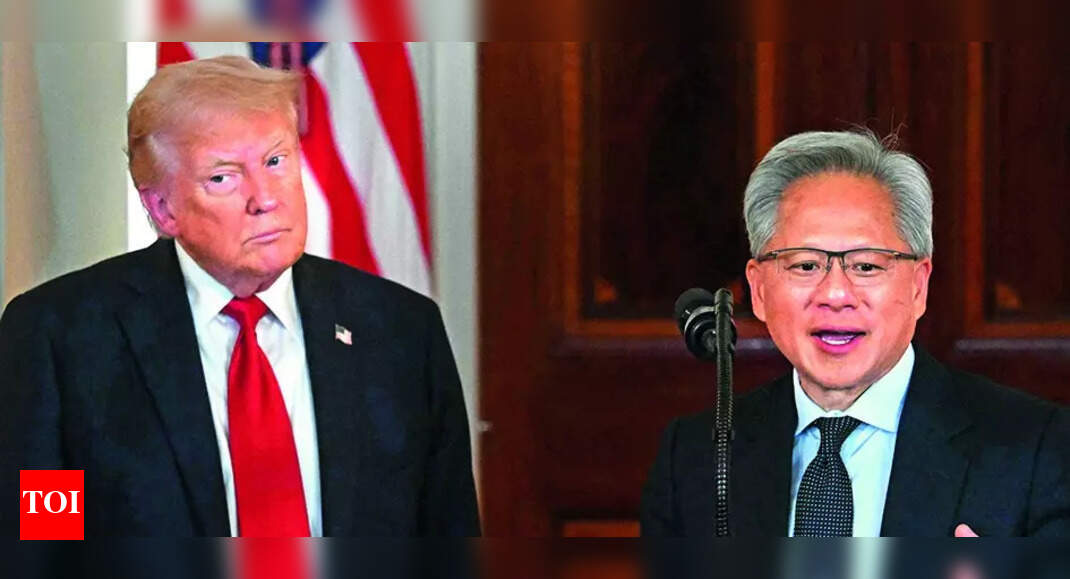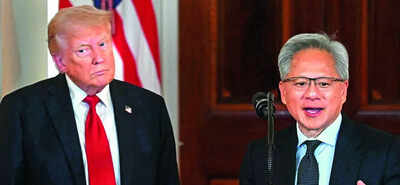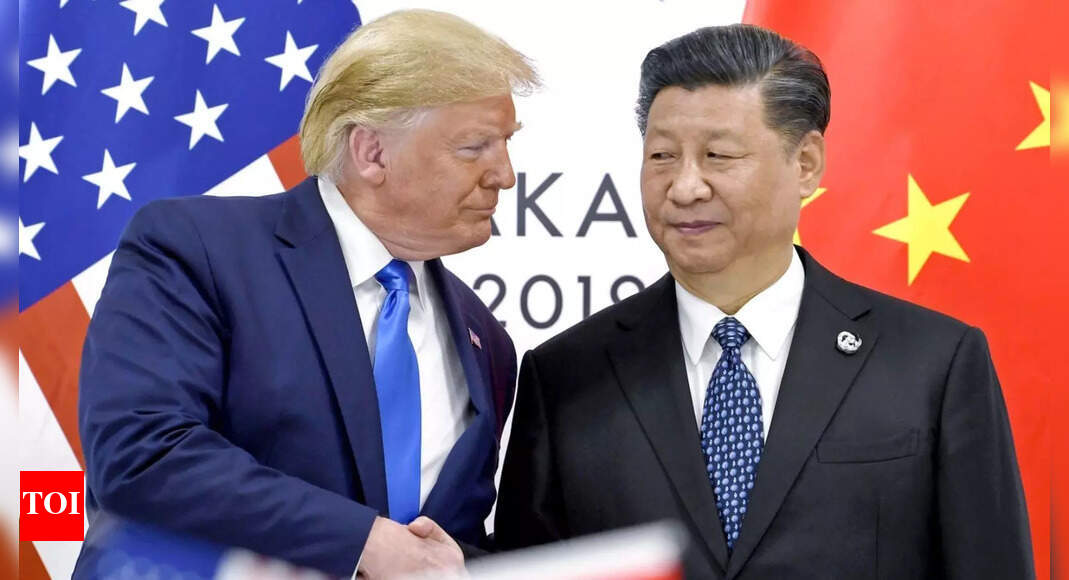Now Reading: US Imposes Fee on AI Chip Exports to China
-
01
US Imposes Fee on AI Chip Exports to China
US Imposes Fee on AI Chip Exports to China

### Rapid Summary
– Nvidia and AMD are required to give 15% of revenue earned from selling AI chips to China under a deal with the Trump management.
– This agreement follows nvidia receiving permission to sell an older AI chip version, H20, to China last month, tho licenses for sales were issued only days ago.
– The deal could generate over $2 billion for the U.S. government based on sales projections.
– President Trump originally proposed taking 20% of revenue but settled on 15% after negotiations with Nvidia CEO Jensen Huang.
– The Commerce Department’s issuance of export licenses is tied directly to this revenue-sharing arrangement,described as unorthodox and unprecedented in U.S. trade policy history.
– AMD’s AI chip MI308 was banned by Trump in April for export to China.

[Read More](https://timesofindia.indiatimes.com/world/us/in-unusual-move-us-to-take-cut-of-ai-chips-sold-to-china/articleshow/123244859.cms)
—
### Indian Opinion Analysis
The unusual U.S. agreement requiring Nvidia and AMD to share revenues from Chinese sales marks a significant shift in global trade policy dynamics. By directly tying government permissions for tech exports-especially advanced AI technology-to financial returns for its federal treasury,this move can be seen as reinforcing protectionist tendencies while securing economic leverage amid geopolitical tensions.
For India, which closely watches developments related to tech regulations globally due its large IT sector dependency, several questions loom large: Could such interventionist policies redefine how countries negotiate access and trade within high-tech industries? With growing concerns about supply chain control between competing global powers like the U.S., India might need proactive strategies both diplomatically and commercially when integrating into these broader frameworks without depending too heavily on one partner or region.
Nvidia’s focus on speeding licensing approvals signals that even legacy technologies remain strategically viable in sensitive industries like artificial intelligence-a lesson important for India’s emerging semiconductor ambitions as it seeks investment partnerships targeting similar markets worldwide.However, neutrality remains essential; while observing international trends like these holistically India keeps future implications weighed above reactionism itself shaping self-reliant pivots ahead


























